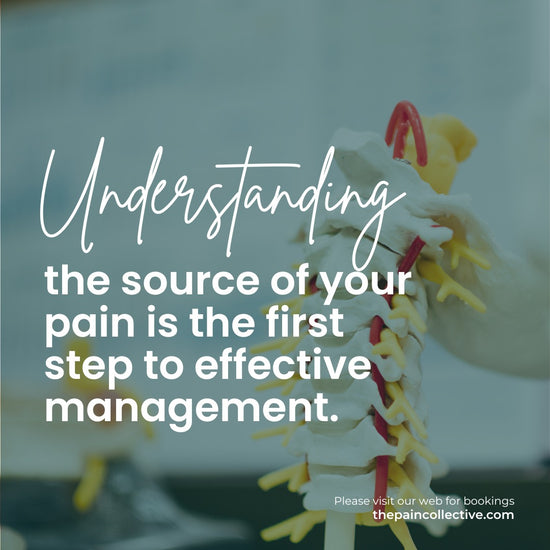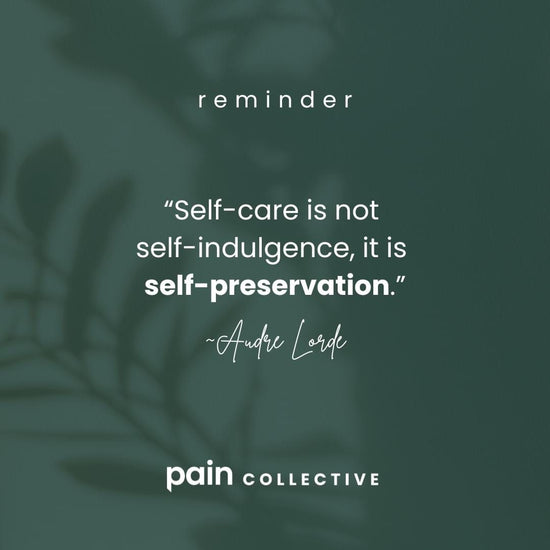WHAT IS PAIN?
Pain is defined by the International Association for the Study of Pain as:
“An unpleasant sensory and emotional experience associated with, or resembling that associated with, actual or potential tissue damage.” In plain language: pain is an unpleasant experience that the body and brain generate when there is a perceived threat to your tissues or wellbeing. Importantly, pain can occur with or without ongoing tissue damage. In many people with persistent pain, the nervous system becomes more sensitive over time, which means pain can continue even after an injury has healed. Pain is hard to ignore—it disrupts life and pushes us to protect ourselves, change behaviour, or seek help.
Pain is produced by the brain based on information it receives from the body through nerves. If the brain interprets the signals as important or threatening, it may generate pain to encourage protection. For example, if you bump your knee, sensors in the tissues send rapid signals up the nerves to the spinal cord and brain. If your brain decides the event matters, you experience pain in the knee area. This protective system is clever—but in persistent pain it can become over-protective, sounding the alarm more easily than it should.

Pain is an output of the brain in response to a signal received from a nerve, telling the brain that something dangerous or potentially dangerous is happening somewhere in the body. The brain will receive a message from the area where the nerve originates.
So, for instance, if you bump your knee against a door frame, a signal will race up a nerve at blinding speed all the way to the part of the brain that deals with sensation coming from the knee, and if your brain thinks it is important enough, or potentially dangerous enough to pay attention, you will experience pain in your knee (in your brain).
Clever is it not?
WHAT IS THE DIFFERENCE BETWEEN ACUTE AND CHRONIC PAIN?
ACUTE PAIN
Acute pain is a short-term warning signal that usually follows a clear event such as an injury, inflammation, infection, or surgery. It helps you protect the injured area and seek appropriate care. Acute pain often settles as healing occurs and the underlying cause is treated.
CHRONIC PAIN
Chronic (persistent) pain is pain that lasts longer than expected healing time, usually more than three months. It may continue even when tissues have healed, or it may be driven by an ongoing condition such as arthritis, nerve irritation, or inflammation. Over time, the nervous system can become sensitised, meaning it reacts more strongly to signals that would not normally be painful. Chronic pain is real and treatable, but it often requires a broader plan focused on function, flare-up control, and long-term self-management—not only symptom relief.
HAVE YOUR PAIN TREATED BY FOLLOWING THESE 2 SIMPLE STEPS

1. Get a diagnosis
A consultation is required. Your clinician will take a detailed history, may use questionnaires, and perform an examination to understand what is most likely driving your symptoms. Often, the first step is a differential diagnosis—a shortlist of possible contributors based on your story and examination.
You may need special investigations to clarify the diagnosis or rule out important conditions. These can include blood tests and imaging such as X-rays, ultrasound, CT (computed tomography), MRI (magnetic resonance imaging), or, in selected cases, nuclear medicine scans. Investigations are chosen based on your symptoms and examination—because the right test for one person may be unnecessary for another.
Once a diagnosis (or best-supported working diagnosis) is made, a treatment plan can be built around both the underlying contributors and your day-to-day symptoms.

2. Get a treatment plan and become an active partner in your own management
Managing chronic pain usually involves two parallel tracks: addressing underlying contributors where possible (such as inflammation, joint disease, nerve irritation, or lifestyle drivers) and improving symptom control so you can function better. Education is a core part of this—understanding what is driving your pain reduces fear and helps you make better decisions day to day.
Your healthcare team guides the process, but your results depend heavily on what happens between appointments. The goal is to help you build a realistic plan you can sustain—so you become an active leader in your own long-term management, with the team supporting you.




